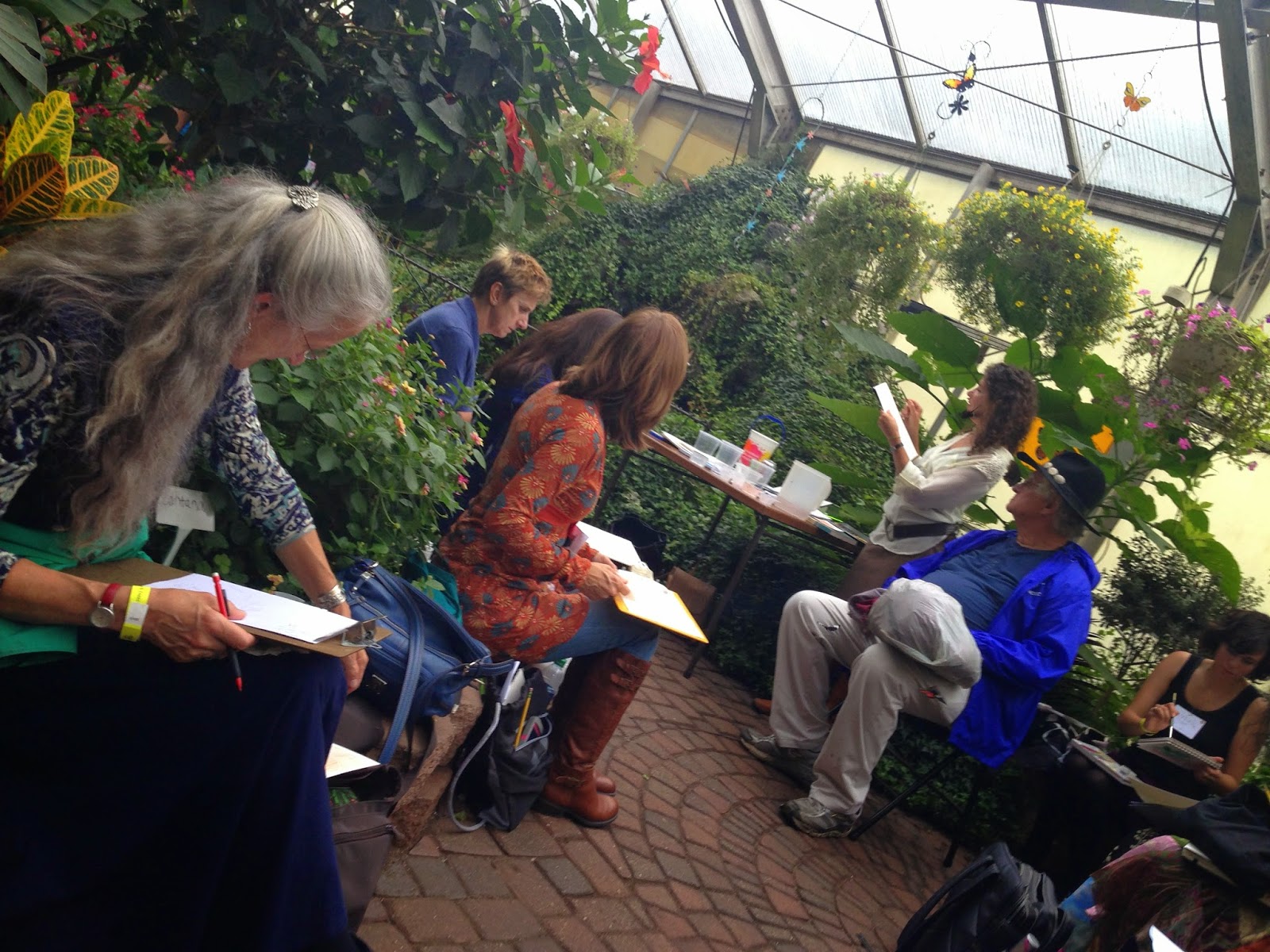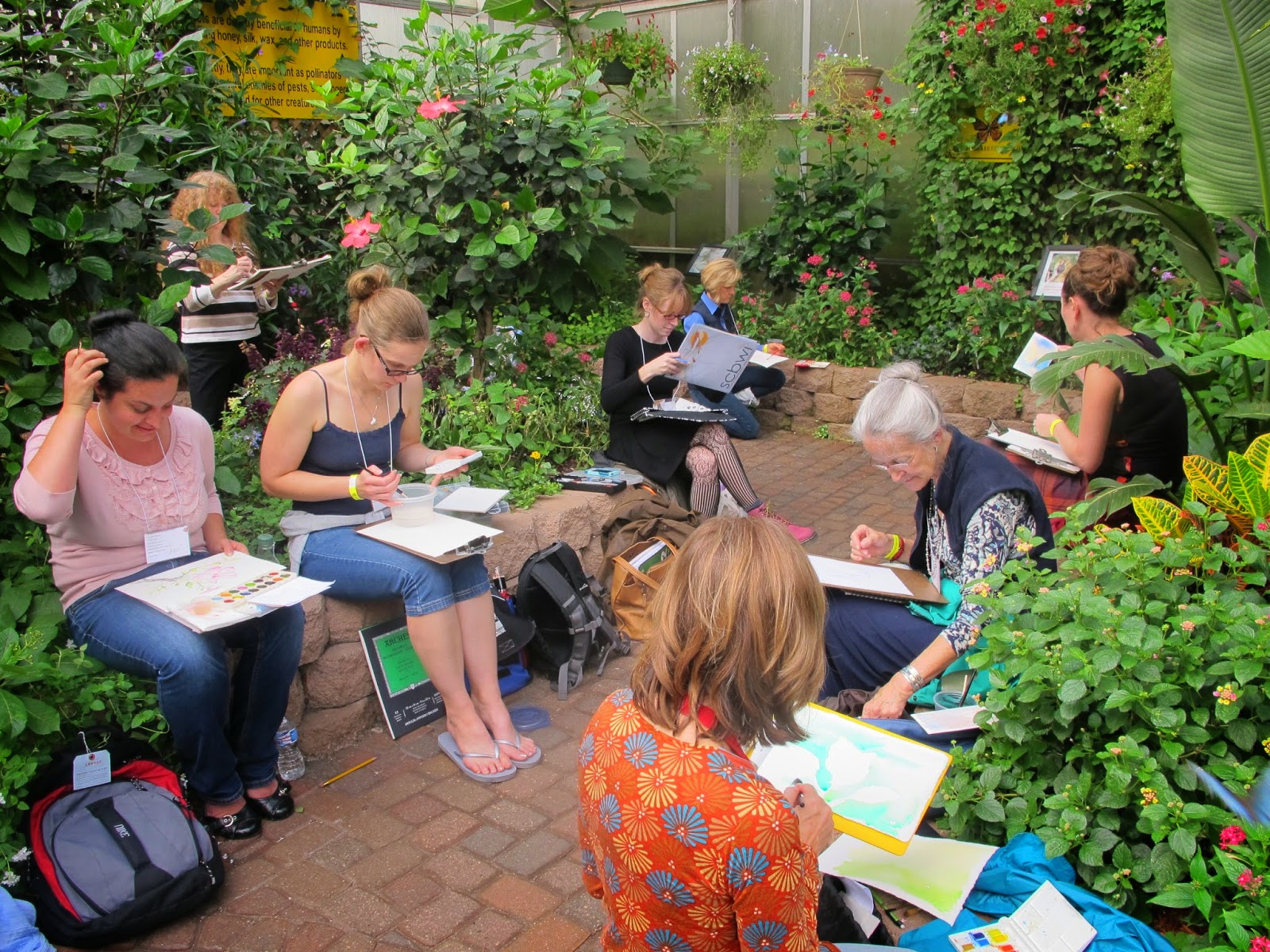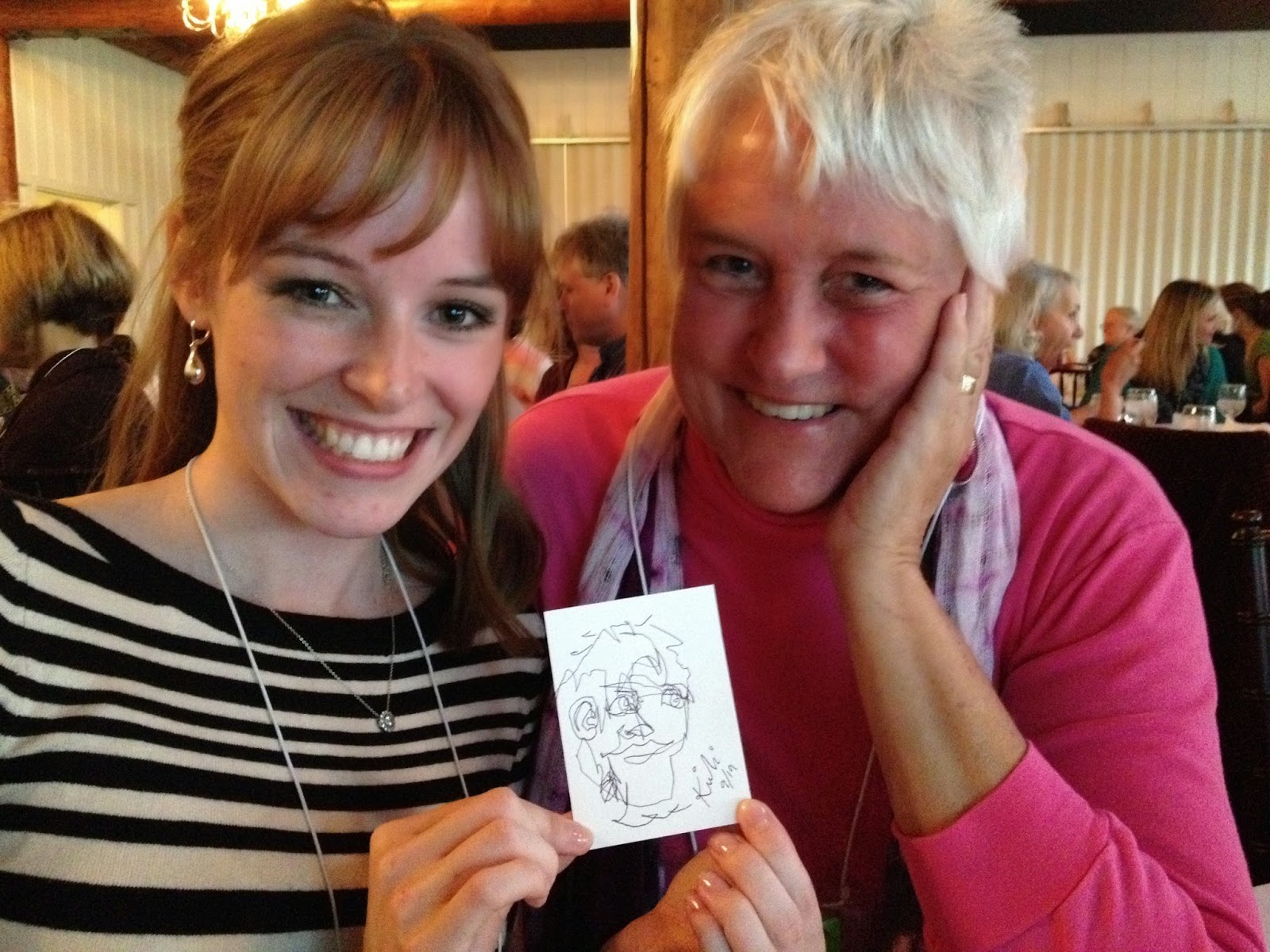Thank you Heidi Woodward Sheffield
for creating the first banner for our blog! We'll feature a new
illustrator every three months, but this is Heidi's moment to shine. Read on to learn more about her artwork and career.
Q and A with Heidi Woodward Sheffield
Tell us about the banner you've created. How and why did this piece come about?
This
pup was originally created for the Ann Arbor District Library’s “Born
to Read” program and earned ALA recognition. This CD of songs and
stories was given out to new moms. The idea came about when I was
looking at an old button one day. As I gazed at it, the distressed
texture, hair and face looked to me like a much-loved puppy.
How long have you been illustrating and how did you get started?
I’ve been drawing since I could hold a crayon, somewhere around two or three years old. I loved using bright beautiful colors, which is ironic as black was one of my favorite crayons to use. They just ran out faster than others. As a kid, I always wondered why there weren't two to a box. Drawing has always been something that I didn’t just like doing. I needed to do it, every day. I have a degree in art, but I wasn’t taught how to create. I was just born that way.
After earning a B.A. in English from the University of Michigan, I attended College for Creative Studies, where I'd hoped to study illustration. Little did I know they were transitioning illustration out of their program (cut to 2014, where it’s been added back in). At the time, many teachers told me illustration was a dead art. One instructor felt a little sheepish and researched things for me. The only program he came up with for studying children’s book illustration was in Switzerland, at the time! (Yes, it was long ago.) So when the same instructors introduced advertising and design to me and said I’d make a great art director or copywriter, I went with it. “I’ll pursue illustration after I build up a nest egg and have children,” I thought. (Ha! I had no idea the path was so difficult and circuitous!) Around 2004 I began pursuing illustration full-timewith a series of posters for the Ann Arbor Book Festival. The Ann Arbor District library contacted me about creating work for them. Many of these illustrations were recognized by the ALA. They became springboards for picture book ideas.
What
are some of the things you learned in your advertising work? Has this informed your
children's writing and illustrating in any way?
You can’t work in advertising unless you can tell a good story. Ads are emotional. Great ads are elegant in their simplicity without being simple. With copywriting, I learned to use each word. Wisely! You also throw proper grammar out the window. You learn to write in sentence fragments, because that’s the way people think and speak. Another thing you do as an art director and copywriter is pitching ideas to the client. Tell them the story, get them to identify with it, and make it their own. Other things? You learn to fly by the seat of your pants, follow deadlines—“be creative” at the drop of a hat, and trust your instincts. That experience directly translated to elevator pitches in publishing and cold calls at conferences. It helped me introduce myself to various editors, art directors, and agents. That’s how I got my first agent. I was amazed with one of his talks at SCBWI NY. Afterwards, I introduced myself and thanked him. I kept it very brief, gave him one of my illustration postcards with a few words about how his speech had resonated with me. Within two weeks he offered me a contract.
What is the one thing in your studio you couldn't live without? What are your favorite tools? What mediums do you work in? The
one thing I can’t live without is a window. Something about looking
out, beyond yourself, when you’ve spent the whole morning looking
inward. Favorite tools? Plain white 8.5 x 11 paper for storyboarding and
Uniball Deluxe Micro pens. The pens are hard to find, but nothing feels
so right to draw with.
I love thumbnails—the
fastness, the fluidity, the looseness of them. Keeps you limber and your
thoughts flowing. It’s something from my advertising days. More often
than not, I take the thumbnail and blow it up to create final art. If
your art (and concept) can hold up as a postage stamp size, it’ll be
good as a larger piece, too. Blowing up the thumbnail to use in the
final helps maintain the vigor and freshness in the final piece.
Other
tools? Gouache paint, water-soluble oils, Photoshop, a 8.5x11-inch
wacom tablet, plus a Canon Digital Rebel for creating collages. And a
crazy huge monitor. I use my camera a lot, but don’t consider myself a
photographer. I use the Rebel over other cameras because it takes photos
in real time with no shutter lag. That’s especially important when
taking reference pictures of children. I’ve taken literally thousands of
texture pictures, which often inspire different stories from the
get-go. I must have been a bowerbird in another life, for my studio is
chock full of bright and shiny things, buttons, and old stuff in
general. I like to think about the person who lived with that item. What
their lives where like. I also surround myself with hand-stitched
embroidery from various cultures, old paper, books, textiles and vintage
clothes. My new office mate Buster Brown, (a Boston terrier) helps keep
things real.
When you're absolutely stuck, where do you turn for inspiration?
It’s unusual for me to get stuck art-wise. I’d say the writing side is sometimes a bit stickier.
I
have a tiny 2-inch x 2-inch photo of my family when I was five. Looking
at it immediately transports me to a simpler time. I read quotes taped
to the bottom of my computer: “Without fear, there cannot be
courage,”—Aragon, “Do not let great ambitions overshadow small
success,”—fortune cookie wrapper, “A professional writer is an amateur
who didn’t quit,”—Richard Bach.
If I’m having a hard
time letting my guard down and getting into the nitty gritty of an
emotionally-filled piece, I listen to the blues. There’s something about
the raw power of human emotion. I might listen to introspective tunes
like “Help Me,” by Johnny Cash, “Let it Be,” and “The Long and Winding
Road,” by Paul McCartney. When I’ve chosen a direction to pursue art
wise, I celebrate and amp up the volume listening to vintage Beetles,
stuff like “Hard Day’s Night.” It helps keep my art loose and organic
and keeps me moving forward, rather than nit picking details. And the
experience becomes extra sweet, living in the moment. The art becomes
truly organic, taking on a life of it’s own. There’s always something
that surprises me.
Other things for inspiration? My
seven-year-old daughter Lauren. She’s a whimsical little pixie and she
inspires many sketchbook ideas. I go to the museum. Or visit online
museums. I look at closeups of brushstrokes. Something about feels
immediate, intimate, like the artist and I are present, together. The
brushstrokes themselves feel private, like a secret that the artist is
sharing with me. Sometimes I call my good friend Charlie. His enthusiasm
inspires me. He makes me feel like I’m standing on my head and all the
ideas come rushing down. We take cameras and go shoot stuff. Mostly
pictures of the ground. We get lots of strange looks. But it’s worth it!
Try it sometime. Look down. There’s a world in the granite you stand
on.
A huge thanks to Heidi for creating our first blog banner and participating in our first Illustrator Interview!
Heidi created this image for t-shirts and book bags for the
SCBWI Nevada Mentorship program. Come back tomorrow for part 2 of Heidi's interview and learn about her mentorships - maybe one of them will be a good fit for you, too. In the meantime, learn more at
http://www.heidibooks.com/.






























